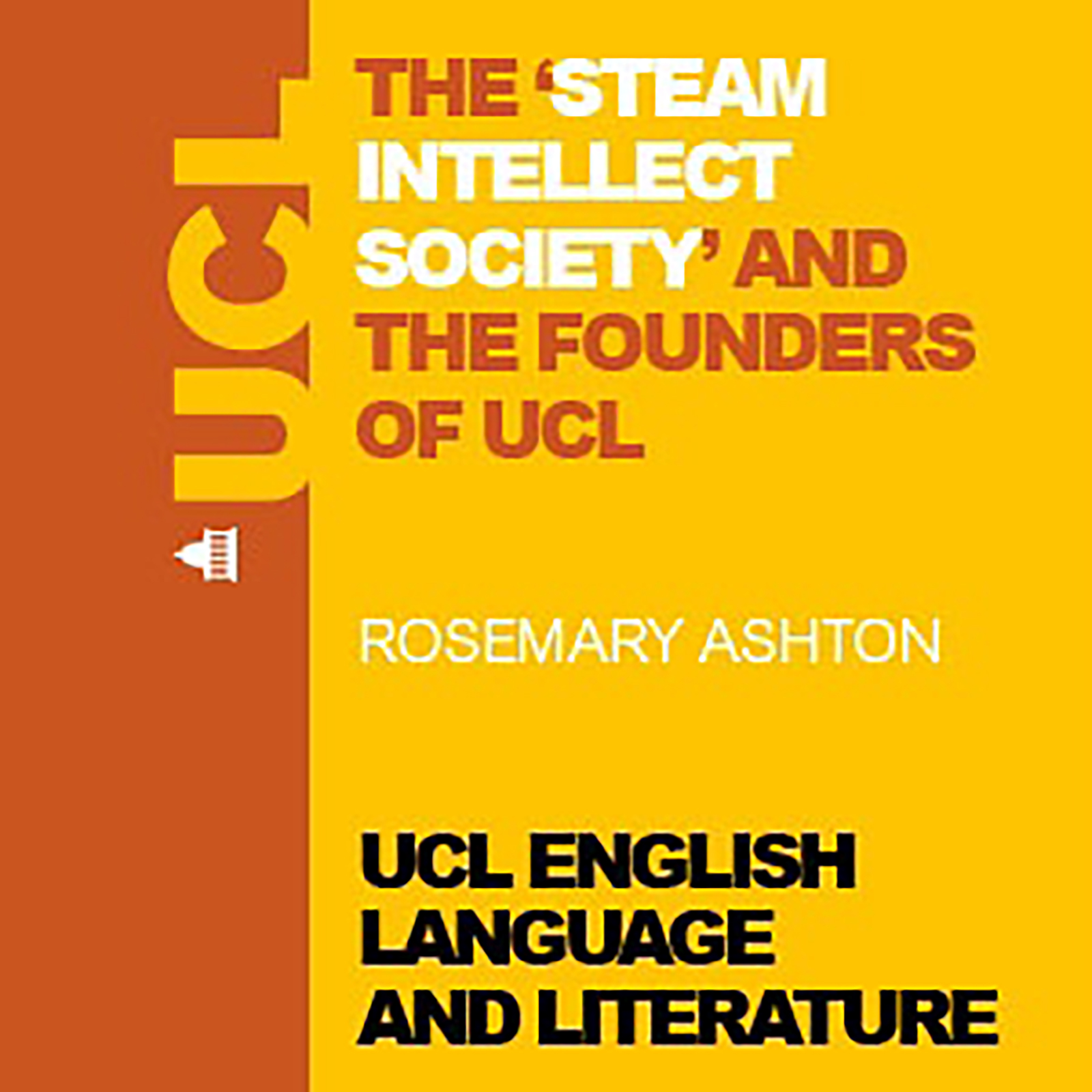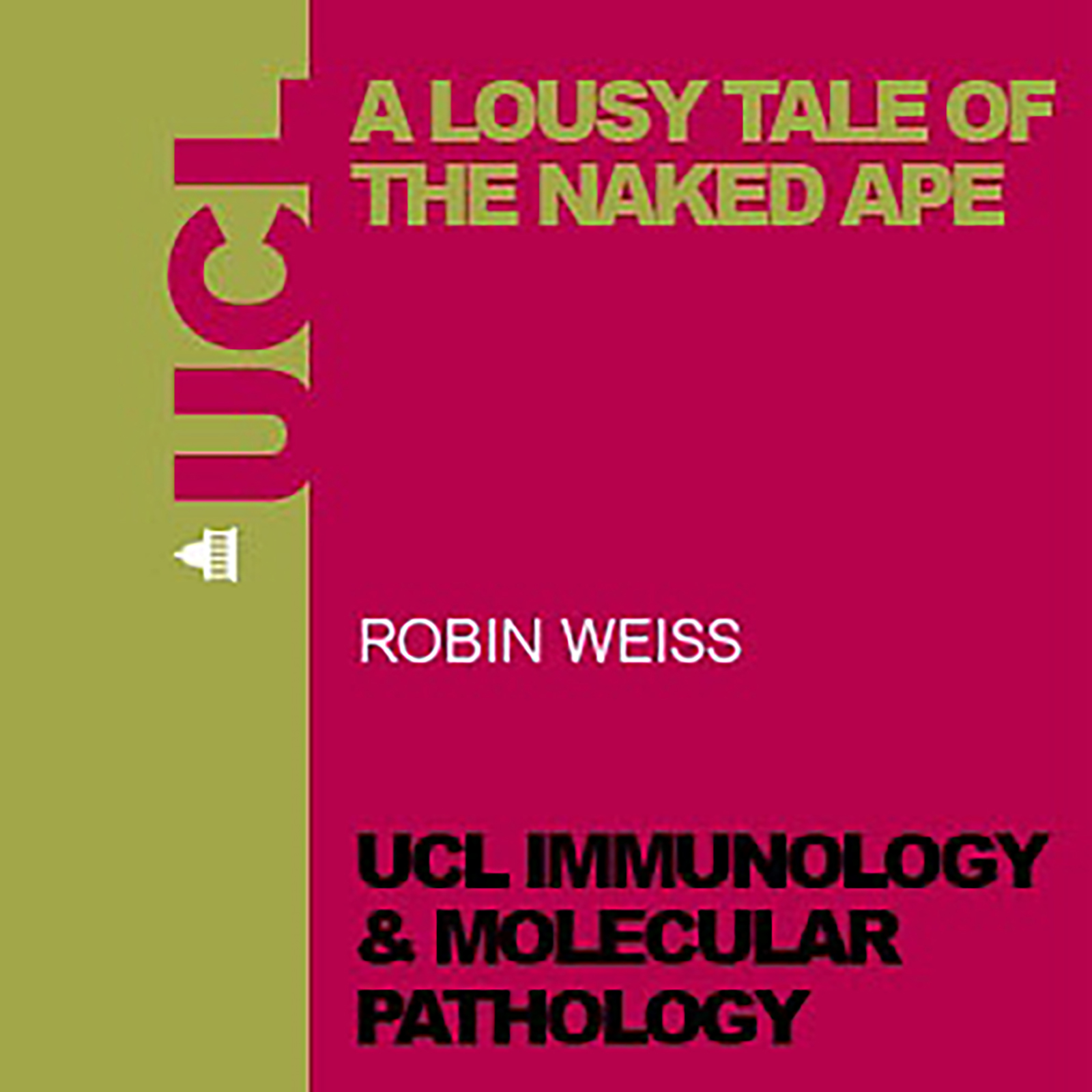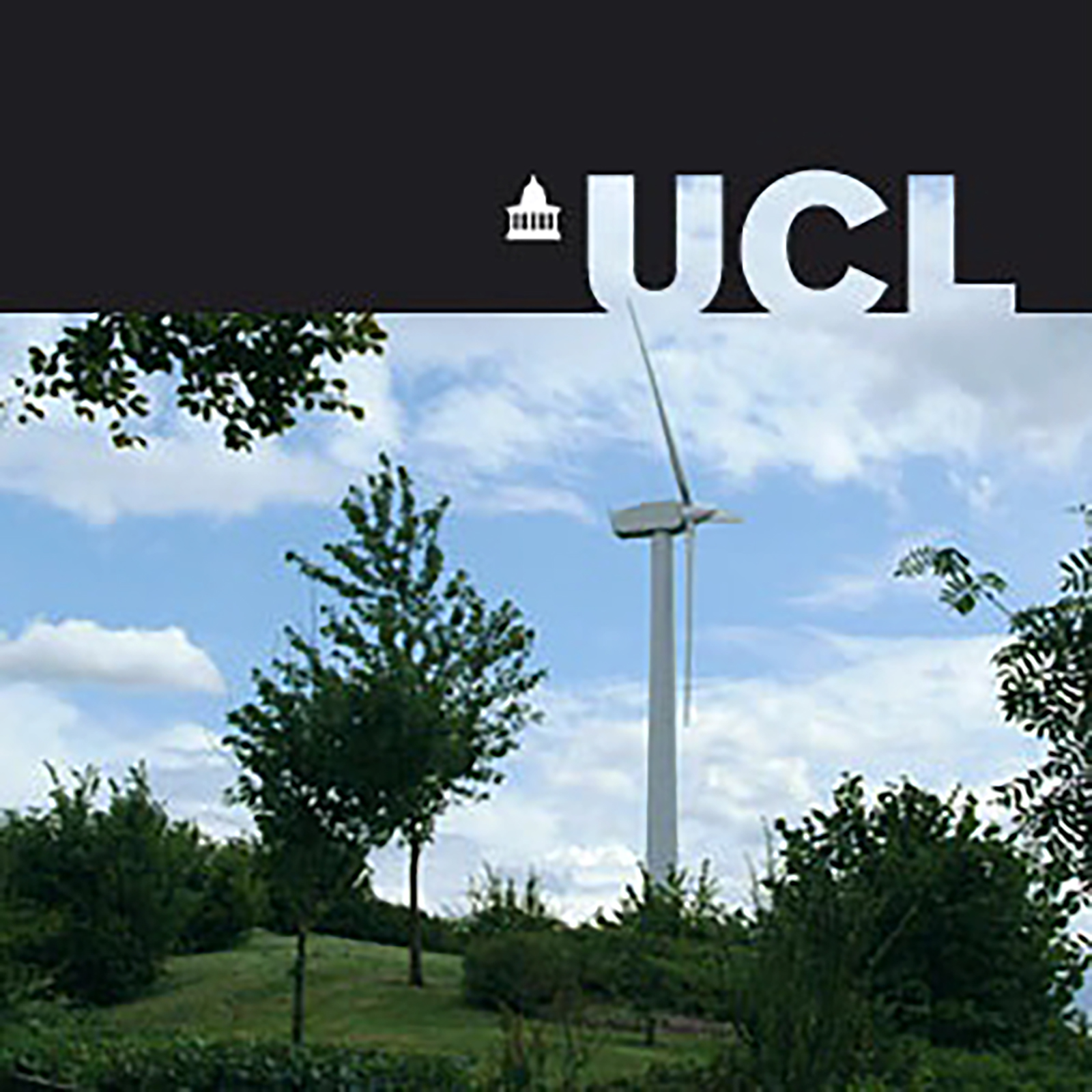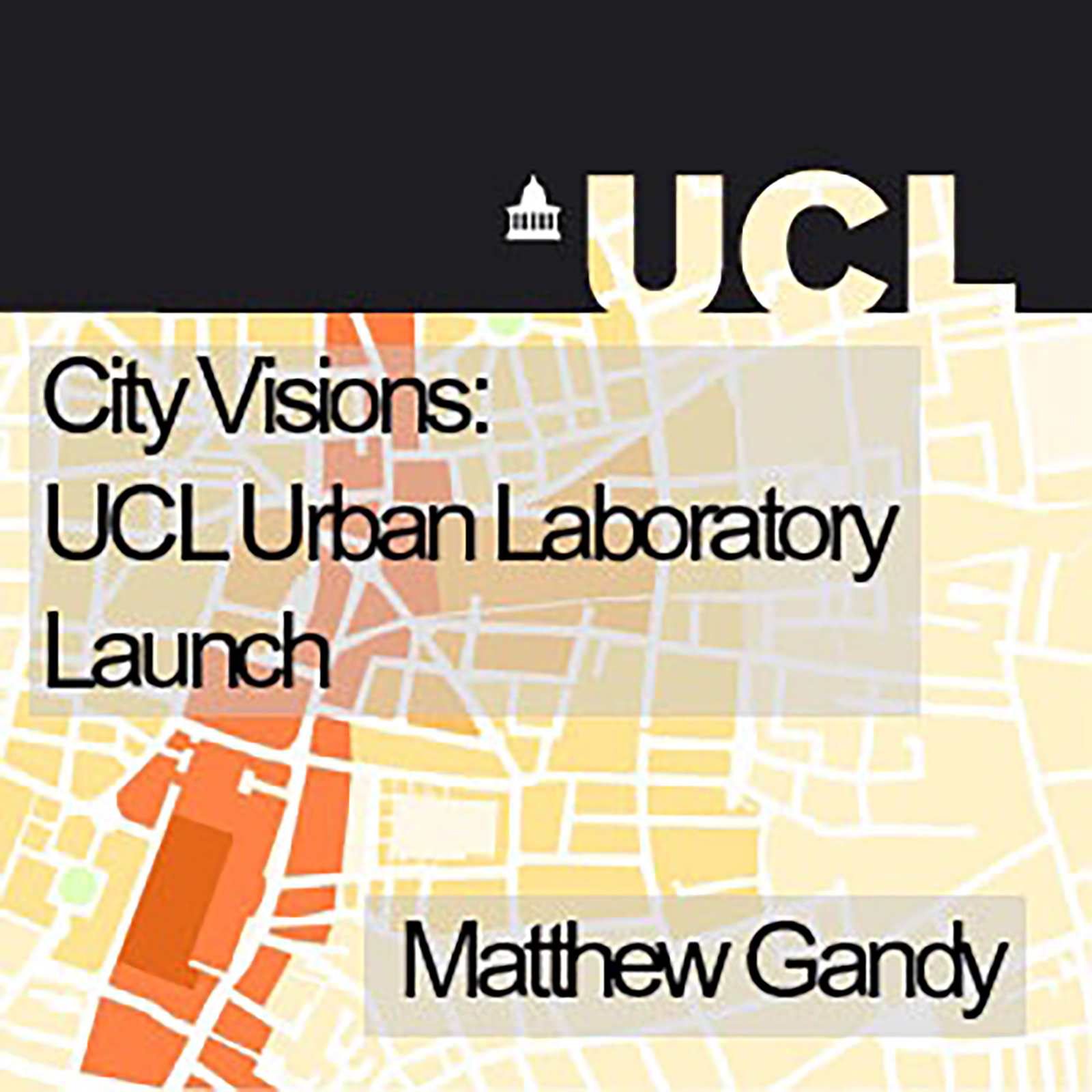UCL
More than 300 adolescents and young adults die suddenly and unexpectedly each year in the UK. Most of these deaths are caused by inherited forms of heart disease and are potentially preventable. Mass screening programmes are unlikely to be cost-effective, but targeted cardiac evaluation of ‘at...
The Society for the Diffusion of Useful Knowledge, caricatured as the ‘Steam Intellect Society’ in Thomas Love Peacock’s comic novel ‘Crotchet Castle’ (1831), was founded in 1826 by Henry Brougham and a group of influential Whig and radical friends. Many of the group were involved in establishing...
In the last 18 months Peter Head has visited 23 countries discussing a transition from the industrial model of city development to an ecological one based on efficient use of renewable resources, including energy. He will present both retrofit and new development scenarios which are emerging, and...
There are three guest speakers at each UCL Grand Round, the talks span basic science, clinical translation, and population health. These talks are followed by a panel discussion, the audience consists of doctors, researchers, and medical students from UCL and NHS partner trusts in addition to...
The UCL Institute for Human Rights was established in October 2009. It
brings together expertise in Laws, Political Science, Economics,
Epidemiology and Public Health with student activists, non-governmental
organisations and other parties to undertake rounded research that can
influence human...
Although human DNA is 98 per cent similar to that of the chimpanzee, the infections we catch are 80 per cent different. Most are new acquisitions that we have picked up as humans spread across the world. In fact, pandemic infections like smallpox and influenza only date from the last 12,000 years...
The Commission on Social Determinants of Health was set up by the World Health Organisation to collate global evidence, raise societal debate and recommend policies, with the goal of improving health and reducing health inequalities between groups.
A major thrust of the commission is turning...
The MSc Adaptive Architecture and Computation aims to give students a
comprehensive understanding of the practical skills required to create
generative, emergent and responsive forms, through exposure to real
programming environments. In order to achieve this goal, the course team
comprises both...
Michael Walls discusses his role as part of a team co-ordinating election observers for the fortcoming presidential elections in the internationally unrecognised Republic of Somaliland.
‘Boxing: A Cultural History’ is a new investigation of the shifting social, political and cultural resonances of the visceral sport by UCL English lecturer Kasia Boddy. Dr Boddy demonstrates that the ring has proven to be a enduring venue for staging ideas about class, violence, gender, work,...
The purpose of this meeting was to engage scientists, policy makers and business leaders in a dialogue asking if systems thinking can offer help in their decision-making processes. The meeting was a great success due to an eclectic array of speakers, panellists and participants from various...
Does technology just keep us all chained to our desks, glued to our screens and slumped on our sofas, or can we harness it to help us all to move more, do more and feel happier, more energetic, focused and creative? eWorklife is about work, life and wellbeing: the podcast where we talk to...
Speaking a number of different languages gives you the intercultural skills you need in today’s global world. Studying an alternative language, like Danish, Dutch, Icelandic, Norwegian or Swedish, at UCL means you can learn a new language from scratch and get an insight into a culture not many...
There are many myths surrounding British Sign Language (BSL) – the third most widely used indigenous language in the UK. In this lecture, Professor Woll will try to dispel some of them by introducing BSL, explaining how it works and exploring the community it has created.
The pro-screening lobby is locked into a mindset dating back to the late 1980s. Since then our understanding of the biology of breast cancer and its treatment has moved on whilst the screening programme continues without modification based on the results of trials reported in 1987. This lecture...
The Spring 2008 UCL Institute for Global Health Symposia series began on 12 February 2008.
The first symposium, ‘Global Health: What’s justice got to do with it?’, explored some of the questions of justice and morality underlying the global-health agenda.
A brief presentation by Professor...
The UCL Global Health Symposium, ‘HIV/AIDS - With No Magic Bullet, Where to Next?’, was held on 15 April 2008. The panel and audience explored the future of HIV/AIDS research programmes and policy more than 20 years of after the emergence of the HIV epidemic.
Professor Richard Frackowiak was born in London and studied medicine at the University of Cambridge where he first became interested in the neurosciences. He joined the Medical Research Council’s Cyclotron Unit at Hammersmith Hospital, London, in 1979, under Professor Terry Jones, who had just...
In her lecture, the second in the series Global Perspectives on the Current Crisis organised by the Centre for Transnational History at UCL, Prof Stewart compares the current crisis with that of the 1980s, as well as setting up a comparison across countries. She argues among others that the...
D. A. Henderson, is a Distinguished Scholar at the Center for Biosecurity of UPMC and a Professor of Public Health and Medicine at the University of Pittsburgh. He is Dean Emeritus and Professor of the Johns Hopkins School of Public Health and a Founding Director (1998) of the Johns Hopkins...
A conference on Closing the Gap in a Generation: Health Equity through Action on the Social Determinants of Health 6-7 November 2008, London.
The 20th century has seen impressive gains in health and life expectancy in many parts of the world – but these improvements are unequally distributed. In every country, poor people and those from socially disadvantaged groups get sicker and die sooner than people in more privileged social...
The UCL Institute of Origins – exploring the origin and evolution of the universe, and the origin of life – was launched on 27 February 2009, featuring a talk by Nobel Laureate Professor Sir Paul Nurse.
UCL President and Provost Professor Malcolm Grant described the institute as a model for how...
The pro-screening lobby is locked into a mindset dating back to the late 1980s. Since then our understanding of the biology of breast cancer and its treatment has moved on whilst the screening programme continues without modification based on the results of trials reported in 1987. This lecture...
All doctors have to assume leadership roles but this podcast series features those who are embracing high levels or responsibility. They originate from many specialities and areas of the profession.
Dr Atul Gawande in conversation with Dr Rodney Reynolds, Dr Jennifer Randall, Dr Susie Kilshaw and UCL Applied Studies students 14.00 on Thursday 28 January 2010.
Captain Jerry Roberts, UCL German alumnus and Second-World-War codebreaker, spoke at UCL on 11 March 2009 about his experiences breaking the ‘Tunny’ code at Bletchley Park: a much more complex machine than the better-known ‘Enigma’.
Captain Roberts delivered his talk - ‘My Top-Secret...
Lecture by Dr Atul Gawande, 16.30 on Wednesday 27 January 2010. Henry Wellcome Lecture Theatre of the Wellcome Trust, 183 Euston Road NW1 2BE
The inauguration of the UCL Urban Laboratory. The UCL Urban Laboratory, established in 2005, is a university wide initiative to bring together the best urban teaching and research at UCL. Their activities build on the full spectrum of work at UCL across the arts and sciences ranging from civil...
Supported by a grant from the Wellcome Trust to Dr Tilli Tansey and Professor Leslie Iversen, the Wellcome Trust Centre for the History of Medicine at UCL presents a series of podcasts on the history of neuroscience featuring eminent people in the field:
Professor Uta Frith was born on 25th May...
Stemcell discoveries make great news stories, but their actual translation into routine clinical practice is still a major hurdle. Is it reasonable to expect the big pharmaceutical companies to manufacture these living therapies or is the paradigm shift from today’s drugs to ‘living cells as...
UCL marks World TB Day with the symposium: ‘The challenge of TB: UCL’s contribution’.
The event commemorates the date in 1882 when Dr Robert Koch announced the discovery of Mycobacterium tuberculosis, the bacterium that causes tuberculosis (TB).
Hosted by the UCL Institute for Global Health,...
Lecture by Mary May Simon, President Inuit Tapiriit Kanatami about Inuit strategies to confront climate change. 16.00 on Thursday 3 December, 2009, British Museum, Stevenson/BP Lecture Theatre, A Beacon Programme for Public Engagement.
A total of 27 papers were delivered by speakers from the UK, mainland Europe, North and South America and Japan. Speakers included leading established experts in the field and early career researchers, among them postgraduate students. The conference attracted another 35 participants from the UK...
Richard Sennett's lecture explores long-standing and problematic developments in the labour markets of the Anglo-American world that have been exacerbated in the recent dramatic economic downturn. He pays particular attention to a lack of investment in large parts workforce, a phenomenon that...
”The brain has evolved to understand other people. A relatively new area of neuroscience is the investigation of the social brain. Recent research has shed light on how we are able to understand other people’s actions and intentions. Neuroscience has also made important steps towards...
Songs can bring together music and words in powerful and lastingly memorable ways. Our records of song from the medieval period are tantalisingly incomplete, yet this does not prevent medieval song from captivating modern audiences and performers. But how can we be sure that our efforts at...
Sir Peter Mansfield was born on 9 October 1933 and grew up in London. He left school at fifteen to become a printer’s assistant before obtaining a government post at the Rocket Propulsion Department in Westcott, Buckinghamshire. After national service, he studied at night school for the...
The 2008/2009 UCL IGH Symposia began with 'A new global public health movement? Managing the health effects of climate change' on 24th November 2008. The speakers; Professors Mark Maslin (UCL Environment Institute), Hugh Montgomery (UCL Institute for Human Health and Performance), Joanne Scott...
Alan Schnur is a former WHO staff member. Following his work in the smallpox eradication programme in Ethiopia, India, Bangladesh, Somalia and Geneva, he worked in the Expanded Programme on Immunization units in two WHO regional offices: South-East Asia and the Western Pacific. He was a member of...
Young people have traditionally been seen as healthy and low users of health services. In the modern era, the pressures of economic development and social change have particularly had an impact on young people, increasing mortality and ill health at a time when younger child mortality has...
Archaeology and History are among many academic fields dedicated to the scrutiny, description and characterization of how cultures change; typically, practitioners show a lot of interest in why particular changes happen, but the problem of why they happen at all is rarely addressed except in the...
Professor Anthony Costello, Director of the UCL Institute for Global Health, discusses 'Fatal Neglect: Forgotten issues in child health', a symposium held by the institute on 10 June 2009. The event brought senior figures from Save the Children UK, The Lancet, the Department for International...
Nobel Laureate Professor Amartya Sen addressed a full UCL Bloomsbury Theatre on the theme of violence in society on 2 June as the climax of the 2009 UCL Global Citizenship series.
Professor Sen gave a stimulating and challenging lecture, which explored
ideas around ‘organised violence’ (war,...

















































